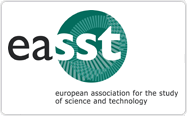The Mutual Enablement of Research Data and Care
How Newborn Babies Become a National Research Population
DOI:
https://doi.org/10.23987/sts.98655Abstract
Public health research depends on access to population data. This article is a study of the practices and the work enabling data collection for public health research. In Denmark, a blood sample is taken from practically every single newborn baby through a national screening programme. These samples can be combined with other health data and used for research purposes without explicit consent from those giving the samples. With an ethnographic approach, I study the practices, the work and the workers of the Danish NDBS samples, and explore how newborn babies come to serve as an important national research resource. From these studies, I argue that the making of national research resources in this way is ‘mutual enablement’ of research data and care. The work of both health professionals and researchers mutually enables professional care and opportunities for collection of samples and data for research. It is through this mutual enablement of research data and care that newborn babies become a national research population.
Downloads
Published
Versions
- 2022-02-15 (2)
- 2021-07-02 (1)
Issue
Section
License
Copyright (c) 2021 Francisca Nordfalk

This work is licensed under a Creative Commons Attribution 4.0 International License.





